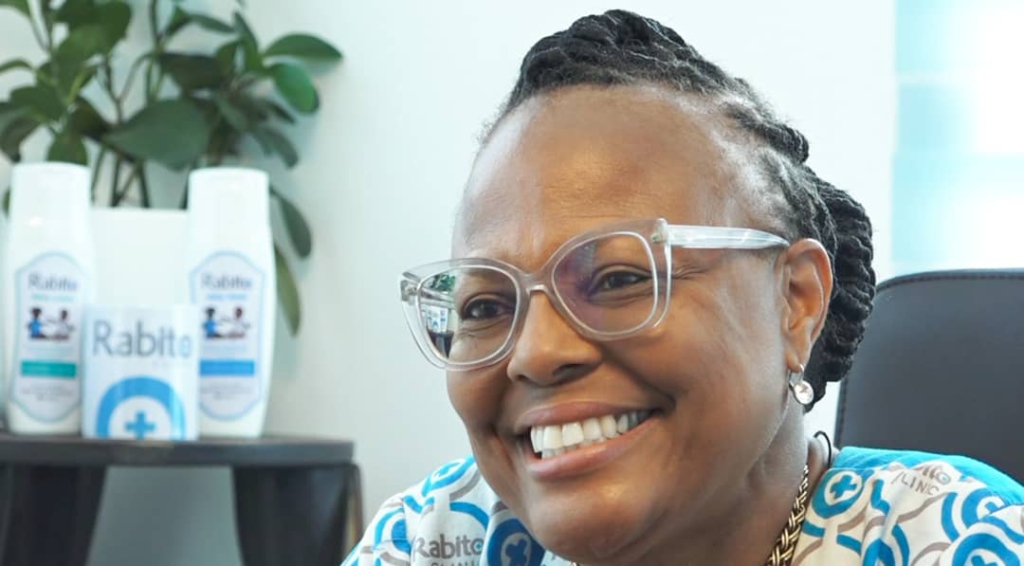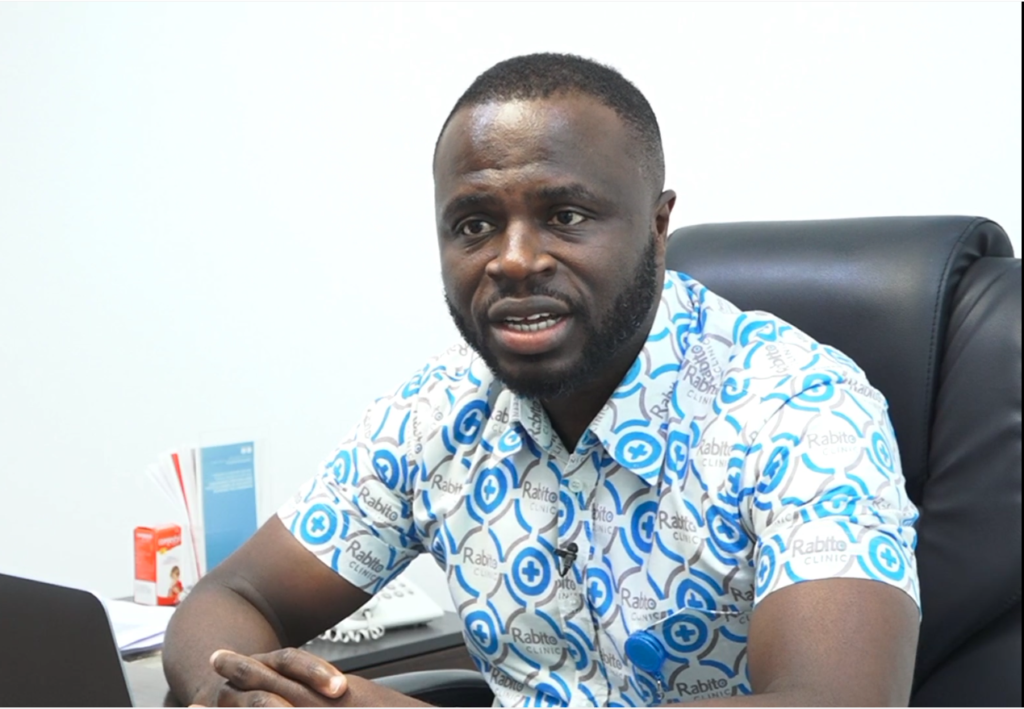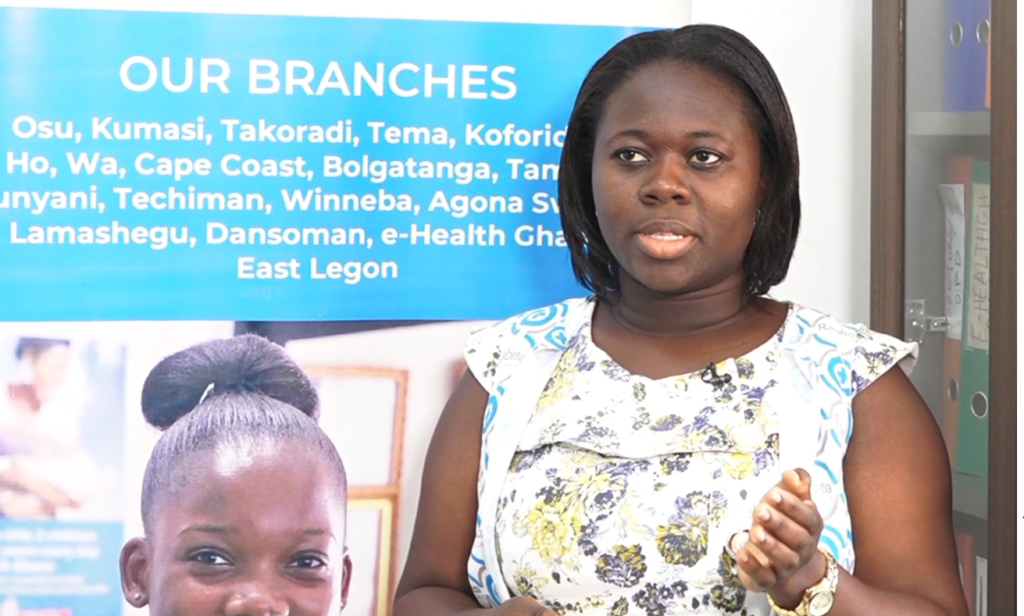Two branches of Rabito Clinic, a private health facility in Accra, have moved to Level 4 of the PharmAccess SafeCare assessment.
This is means the two hospitals are a step away from being fully recognized as a world-class health institutions, based on professional standards.
The two, namely the Dansoman and Lapaz branches were recognized after a rigorous assessment by the SafeCare scheme which seeks to promote quality in healthcare delivery across the globe.
Reacting to this development, the Chief Executive Officer of Rabito Clinic, Karen Hendrickson, expressed delight about the latest ranking and thanked her team members for the feat.
“Waow! Sometimes I have to even pinch myself because from where we started to where we are now, we’re at level 4, on our way to level 5; with two of our branches. It is an empowering and energising and [an] extremely exciting achievement to have been achieved by two of our branches”, she told JoyNews’ Paa Kwesi Schandorf.

She continued: “The two branches are Lapaz and Dansoman. And they have worked tirelessly. We all stared from let’s say zero, and now for them to have reached Level 4 is a testament to the commitment of the administrators in the branches, in addition the clinical staff as well as the general operational staff who have collectively made it a target to ensure that they address the SafeCare issues that move them on the continuum to climb the ladder, and I’m very, very proud of that”.
She also stressed on the need for all stakeholders to contribute to the quality of healthcare delivery across the country.
Touching on plans by her outfit to render quality services to the public, she revealed that the Rabito Clinic is focused on ascending to stage 5 of the SafeCare assessment, with plans to extend its services to rural and deprived communities in the country.
“Rabito recognises this gap in healthcare delivery across the country. So what we as a brand is working at, is putting Rabito branches in areas where we can provide positive impact and provide equality [in] the level of care to those in the community”, she disclosed.
The Rabito CEO added, ‘At this point in time, we have 24 Rabito clinics across the country [and] we’re in 10 regions. We don’t take that kind of expansion lightly. But we recognise that for Ghana to really grow and thrive and flourish, quality healthcare has to be as available as fresh air”.
With about twenty-four branches located across the country, some workers at the hospital intimated that the hospital’s focus on professionalism and dedication, has contributed to the recognition from SafeCare.
Dr Frank Appiah-Agyei, a doctor at Rabito highlighted the hospital’s concern for patients in a manner that recognises their wellbeing and recovery.
He added that, the hospital’s operations have been largely influenced by the quality guidelines prescribed by the SafeCare scheme.

Dr Appiah-Agyei further indicated that he and his colleagues are determined to observe the SafeCare standards in order to better the lives of patients and elevate the status of the hospital.
Adelaide Duako Agyapong, an administrator at the Lapaz branch of the Rabito school also expressed happiness about how the hospital has fared.
“I’ll like to congratulate ourselves from management to my team, and another team that’s also at level 4. We’ve put in so much effort right from the very first assessment that was last year; I think last year September to this point. So a very big congratulations to ourselves for the efforts that we’ve put in”, she said.

She added: “We’ve put in so much effort to be at this level. I know branches moving from level 1 to level 3. Some from level 2 to level 4. So collectively we’ve put in so much, but it shouldn’t be just a nine-day wonder.
“We’ve put in systems, practices, processes and protocols and we prepared towards them. So we should put them in practice so that the quality healthcare that we aspire to give our customers, our clients, will be achieved. So that that they’ll not just leave with better conditions, but with a worthwhile experience”.
A tour of the hospital’s headquarters at Osu also revealed some remarkable improvements in its laboratory and screening equipment.
This according to the management of the hospital, forms part of efforts to strengthen the logistical framework of the hospital.
The improvements, according to the hospital, is also aimed at enhancing quality healthcare delivery to the hundreds of patients who throng the premises daily.
Rabito branches can be located at Osu, East legon, Abeka Lapaz, Tema Com 11, Tema Com 25, Dansoman, Kumasi Adiebeba, Kumasi Bantama, Ho, Aflao, Dome, Kasoa, Tamale, Wa, Sunyani, Winneba, Takoradi, Bolgatanga, My CareMobile, Koforidua, Pharmacy – Linda D’or, Rabito Cosmetic Centre and Makola.
About PharmAccess Foundation and SelfCare
The goal of PharmAccess is to make inclusive health markets work in sub-Saharan Africa, realizing that the first wealth is health.
PharmAccess challenges the notion that exclusion from essential healthcare is an inevitable consequence of living in poorer countries and identifies the opportunities and partners – both private and public need to bring about holistic transformation in failing health markets.
Focusing on the very root causes that hamper health care financing and investments towards equitable and quality health care in sub-Saharan Africa, the organisation works as an innovator and catalyst for pragmatic solutions that can be adopted, adapted, and scaled by partners.
PharmAccess also works with an integrated approach that addresses both the demand and supply side of the health care system and uses the opportunities that mobile technology and data provide to leapfrog development in health markets in sub-Saharan Africa.
The organisation also aims to inspire viable and resilient health markets that provide access to care for millions of people in Africa.
Through public-private partnerships, PharmAccess focuses on; promoting basic health insurance plans and other innovative demand-side financing options to protect people from financial hardship; introducing quality standards and improvement methodologies (SafeCare) for health care providers to increase transparency and stimulate efficiencies; facilitating and stimulating loans, business support, and investments for private health care providers; and innovating value-based health care solutions and financing, using data to empower health care consumers, patients, doctors and financiers alike.
PharmAccess cherishes partnerships in achieving these tasks. On the other hand, the goal of SafeCare is to inspire the improvement of quality and safety in healthcare delivery through innovative approaches such as the use of digital solutions.
Providers in emerging healthcare markets often face very basic problems: staff and supply shortages, inadequate infrastructure, and poor access to potable water and electricity.
Setting and improving quality standards in these challenging environments is the central mission of SafeCare.
The ambition of SafeCare is to create a global platform of organisations and people willing to pursue innovative approaches to improve clinical quality, using transformative digital solutions to challenge the status quo and strengthen trust in the healthcare system.
This is achieved through its three core values of transparency, collaboration, and building value.
In the last decade, SafeCare shares results, stories and learnt lessons and provides real-time data on the scale, scope, and quality of services; all in the bid to improve the quality and safety of healthcare delivery.
By collaborating through global and national partnerships, SafeCare intends to create the greatest possible impact with minimal resources.





